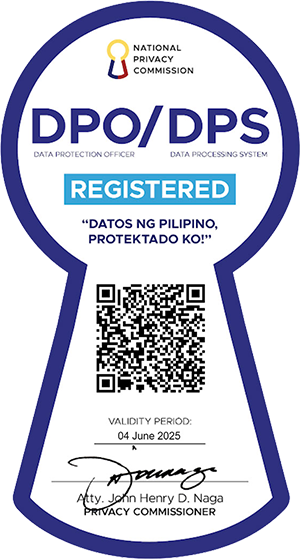
Updates
Catch the APEC live coverage on SKYcable FREEVIEW
November 13, 2015 11:59 AM
After almost two decades, the Philippines hosts and chairs the Asia-Pacific Economic Cooperation (APEC). We hosted APEC meetings for the first time in 1996. The most high-profile event, the APEC Leaders’ Meeting, was held in Subic Bay, Zambales in November of that year.
In 2015, the leaders, senior officials, top businessmen, and industry experts of and from the group’s 21 member-economies will once again come together in the Philippines. The year-long hosting will culminate in the APEC Economic Leaders Meeting (AELM) to be held in Manila from November 19 to 20.
Tune in your SKYcable FREEVIEW channels from 6am to 10pm to catch the proceedings live!
CH 133 SD | 257 HD in Metro Manila, CAMANAVA, Rizal, Cavite, Laguna & Bulacan (San Jose del Monte) CH 63 SD in Baguio, Cebu, Bacolod, Iloilo and Davao
APEC HISTORY
The Asia-Pacific Economic Cooperation, or APEC, was established in 1989. It started as an informal ministerial level dialogue group with 12 members comprising of Australia, Brunei Darussalam, Indonesia, Japan, South Korea, Malaysia, New Zealand, Philippines, Singapore, Thailand, Canada, and the United States. The APEC was initiated as an annual meeting of foreign and trade ministers to sustain the momentum of market opening and economic cooperation which are vital to the growth and prosperity of the Asia-Pacific region.
The primary reason and purpose behind APEC’s establishment is the desire to have a forum that caters to the enhancement of economic conditions of states. This would entail the facilitation of economic growth, promotion of cooperation among states, liberalization of trade, and creation of opportunities for investments in the Asia-Pacific community.
MEMBERSHIP
Currently, APEC consists of 21 member-economies that have diverse economic capabilities. Member economies include both developed and developing countries. The twenty one (21) member economies are:
Brunei Darussalam
Indonesia
Japan
South Korea
Malaysia
New Zealand
Singapore
Thailand
Canada
United States
Chinese Taipei
People’s Republic of China
Mexico
Papua New Guinea
Chile
Peru
Russia
Vietnam
MAIN GOALS
The main goal of APEC is to provide an avenue in creating and maintaining sustainable economic growth and prosperity in the region. This vision was translated to the Bogor Goals of 1994 of free trade and open trade and investments in the Asia-Pacific. During its creation, APEC aimed at attaining this goal by 2010 for industrialized economies and 2020 for developing economies.
Moreover, to achieve the Bogor goals, the APEC member economies developed a framework known as the “Three Pillars” in Osaka, Japan in 1995. The three (3) pillars serve as a guiding instrument in attaining the overall goal of free trade and investments. These pillars are stated below:
TRADE AND INVESTMENT LIBERALIZATION
The trade and investment liberalization pillar aims to gradually reduce and eventually eliminate tariff and non-tariff barriers to trade and investment. Protectionism is an economic policy implemented when government protects its domestic industries against foreign competition usually by means of tariffs, subsidies, import quotas, and the like. As a result, the prices of goods, commodities, and services tend to rise. In contrast to this, trade and investment liberalization opens markets thereby increasing the volume of trade and investments among countries. Through the reduction and elimination of tariffs and barriers to trade, states would not need to worry about inflation, thus economic growth for APEC members is made visible and attainable.
APEC’s Regional Economic Integration agenda is another means by which the three pillars are to be made effective in relation to the Bogor Goals. The Regional Economic Integration works on measures to facilitate bilateral and regional trade agreements. It also examines the prospects for a free trade area in the region.
BUSINESS FACILITATION
Business Facilitation aims to reduce business and trade transaction costs. The reduction in the production costs leads to an increase in trade, investments, and business opportunities for the primary reason that goods and services become cheaper. This could result in more employment opportunities which contribute to the overall improvement in one’s economy.
This pillar also aims to facilitate faster means of accessing and acquiring trade information. It aligns its policies and strategies towards the facilitation of economic growth and an open and free trade environment.
ECONOMIC AND TECHNICAL COOPERATION (ECOTECH)
Through the Economic and Technical Cooperation pillar, APEC intends to provide training and cooperation through capacity-building projects and activities among its member economies. ECOTECH prioritizes regional economic integration, addressing inclusive growth, improving and protecting people’s quality of living through sustainable growth, structural reform, and human security.
APEC 2015: BUILDING INCLUSIVE ECONOMIES, BUILDING A BETTER WORLD
What is the theme of APEC 2015?
Under the Philippines’ leadership, the overall subject of APEC 2015 is the promotion and advancement of inclusive growth in the Asia-Pacific region, hence the APEC 2015 theme, “Building Inclusive Economies, Building a Better World.” Accordingly, inclusive growth can be defined, described, and analyzed in three stages –domestic/national, regional, and macro levels.- At the domestic/national level, the inclusive growth strategy of the Philippines is based on creating employment opportunities and jobs, involving and integrating the majority of the population in the economic and social mainstream, and alleviating poverty through good governance and domestic reform.
- At the regional level, the inclusive growth strategy of the APEC region is focused on expanding access to opportunities and enabling people to realize their full potential which will result in more productive employment opportunities, dynamic economic growth, and greater well-being.
- At the macro level, the inclusive growth trajectory of the APEC region is centered on bridging the gap between developing and developed APEC economies for the purpose of maximizing the benefits of a freer and more open trade and investment regime for each and every member economy.
What are the APEC 2015 priorities of the Philippines as host Economy?
In APEC 2015, the Philippines as Host Economy shall seek to mainstream and pursue its priorities into the agenda and economic policy thrusts of the member economies in the Asia-Pacific region. Specifically, the priorities were identified as follows:- Investing in Human Capital Development;
- Fostering Small and Medium Enterprises’ (SMEs) Participation in Regional and Global Markets;
- Building Sustainable and Resilient Communities; and
- Enhancing the Regional Economic Integration Agenda.
Tune in your SKYcable FREEVIEW channels from 6am to 10pm to catch the proceedings live!
CH 133 SD | 257 HD in Metro Manila, CAMANAVA, Rizal, Cavite, Laguna & Bulacan (San Jose del Monte) CH 63 SD in Baguio, Cebu, Bacolod, Iloilo and Davao
APEC 2015 catch-up is also available via SKY On Demand. WATCH NOW | KNOW MORE
Download the  App!
App!
To watch foreign shows, you need to have the channel in your cable subscription and access SKY On Demand using a SKY Internet subscription: SKYbroadband or SKYmobi.









